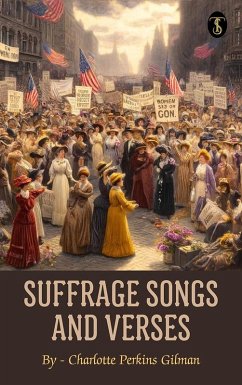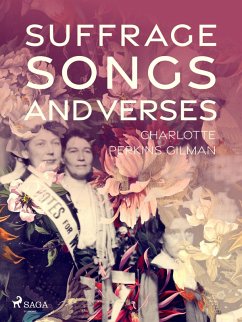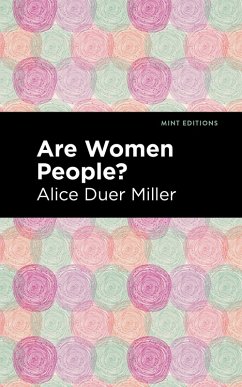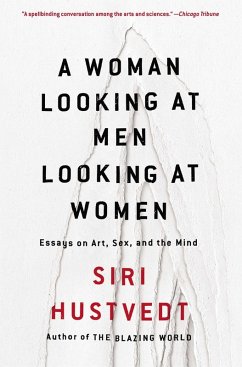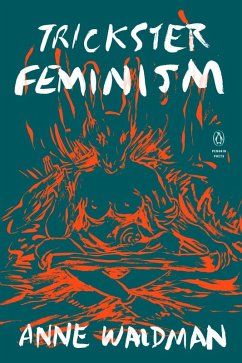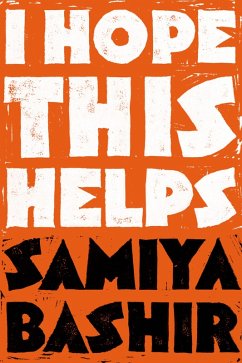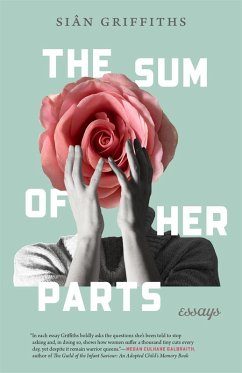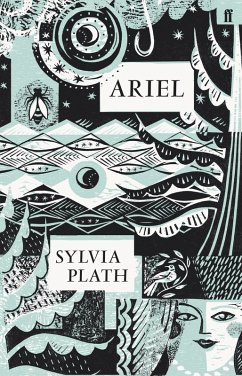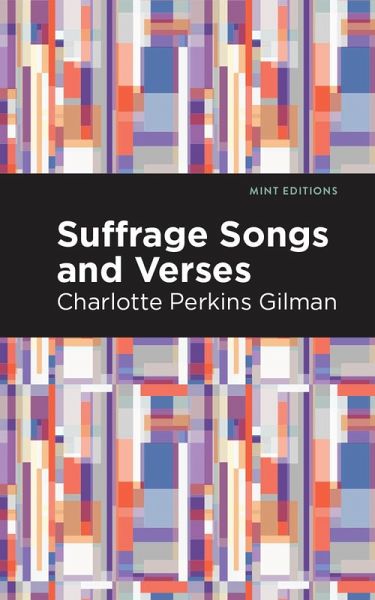
Suffrage Songs and Verses (eBook, ePUB)
Versandkostenfrei!
Sofort per Download lieferbar
2,99 €
inkl. MwSt.
Weitere Ausgaben:

PAYBACK Punkte
1 °P sammeln!
Suffrage Songs and Verses (1911) is a collection of political poems by American author and feminist Charlotte Perkins Gilman. Inspired by her work as a social reformer and advocate for women's suffrage, Gilman turned to poetry as a means of supporting the cause of suffragists everywhere. Although she is widely recognized for her novels, short stories, and nonfiction, Gilman's poetry showcases her command of language and fiery passion for the political and social advancement of women."She Walketh Veiled and Sleeping" opens the collection with an image of latent power, a woman "[s]low advancing,...
Suffrage Songs and Verses (1911) is a collection of political poems by American author and feminist Charlotte Perkins Gilman. Inspired by her work as a social reformer and advocate for women's suffrage, Gilman turned to poetry as a means of supporting the cause of suffragists everywhere. Although she is widely recognized for her novels, short stories, and nonfiction, Gilman's poetry showcases her command of language and fiery passion for the political and social advancement of women.
"She Walketh Veiled and Sleeping" opens the collection with an image of latent power, a woman "[s]low advancing, halting, creeping...to the hour" of her liberation. In "Locked Inside," Gilman echoes the trope of poetry as a voice imprisoned-explored by such poets as Ovid, Coleridge, and Dickinson-to envision a woman who "beats upon her bolted door, / With faint weak hands," barred from the life of the world she not only desires, but desperately needs. In "Boys Will Be Boys"-a poem with a message for our contemporary awakening to the violence perpetrated by men against women-Gilman argues that women must turn to "love and truth" rather than "warfare" in order to have their way. Other poems in Suffrage Songs and Verses explore the nature of motherhood, the institution of marriage, and the need to elevate individual identity beyond the confines of gender. Gilman's work as a poet proves a substantial contribution to both the suffragist cause and the vibrant tradition of political poetry in twentieth century literature.
This edition of Charlotte Perkins Gilman's Suffrage Songs and Verses is a classic of American literature and poetry reimagined for modern readers.
Since our inception in 2020, Mint Editions has kept sustainability and innovation at the forefront of our mission. Each and every Mint Edition title gets a fresh, professionally typeset manuscript and a dazzling new cover, all while maintaining the integrity of the original book.
With thousands of titles in our collection, we aim to spotlight diverse public domain works to help them find modern audiences. Mint Editions celebrates a breadth of literary works, curated from both canonical and overlooked classics from writers around the globe.
"She Walketh Veiled and Sleeping" opens the collection with an image of latent power, a woman "[s]low advancing, halting, creeping...to the hour" of her liberation. In "Locked Inside," Gilman echoes the trope of poetry as a voice imprisoned-explored by such poets as Ovid, Coleridge, and Dickinson-to envision a woman who "beats upon her bolted door, / With faint weak hands," barred from the life of the world she not only desires, but desperately needs. In "Boys Will Be Boys"-a poem with a message for our contemporary awakening to the violence perpetrated by men against women-Gilman argues that women must turn to "love and truth" rather than "warfare" in order to have their way. Other poems in Suffrage Songs and Verses explore the nature of motherhood, the institution of marriage, and the need to elevate individual identity beyond the confines of gender. Gilman's work as a poet proves a substantial contribution to both the suffragist cause and the vibrant tradition of political poetry in twentieth century literature.
This edition of Charlotte Perkins Gilman's Suffrage Songs and Verses is a classic of American literature and poetry reimagined for modern readers.
Since our inception in 2020, Mint Editions has kept sustainability and innovation at the forefront of our mission. Each and every Mint Edition title gets a fresh, professionally typeset manuscript and a dazzling new cover, all while maintaining the integrity of the original book.
With thousands of titles in our collection, we aim to spotlight diverse public domain works to help them find modern audiences. Mint Editions celebrates a breadth of literary works, curated from both canonical and overlooked classics from writers around the globe.
Dieser Download kann aus rechtlichen Gründen nur mit Rechnungsadresse in A, D ausgeliefert werden.




